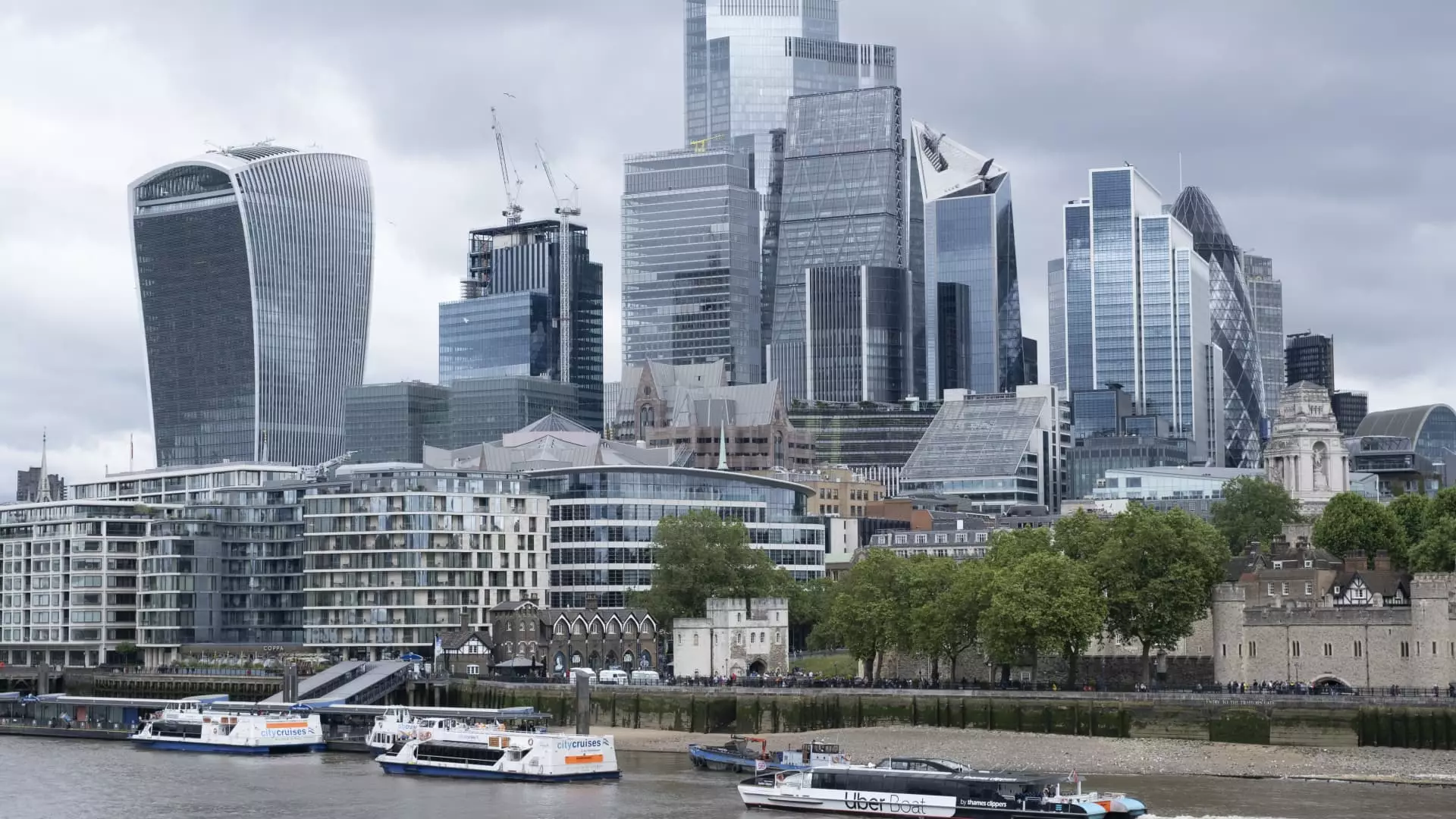The economic landscape of the United Kingdom has recently seen a shift, according to new projections from the International Monetary Fund (IMF). The agency has upgraded the growth forecast for the U.K. economy for 2024, attributing this optimistic outlook to the anticipated decreases in both interest rates and inflation. These developments are expected to stimulate domestic demand, providing a glimmer of hope for a nation that has grappled with economic challenges in recent years.
The IMF has revised its growth estimate for the U.K. from an earlier forecast of 0.7% to a more optimistic 1.1% for the year 2024. This adjustment reflects an evolving economic scenario where inflation rates have fallen significantly, with recent figures indicating that inflation stood at 1.7% in September—harking back to a much higher 11.1% recorded in October 2022. The continued observation of declining inflation rates, particularly within the services sector, coupled with moderated wage growth, has led many economists to predict a swifter pace of interest rate reductions by the Bank of England. Projections now suggest that the central bank could lower its key interest rate from 5.25% at the beginning of the year to approximately 4.5% by the end of 2024.
Despite the IMF’s positive reassessment, economic growth has been anything but robust so far in 2023. The U.K. economy experienced a mere 0.2% growth in August, following a stagnation in June and July. These figures indicate that while there may be signs of recovery on the horizon, the road ahead remains fraught with difficulties. Against this backdrop, the political environment in the U.K. is proving to be just as complex, with the expectation of the upcoming budget from the Labour Party—its first in 14 years—looming large over the economic climate.
Labour Party leader, Prime Minister Keir Starmer, has remarked that the government will need to make “tough” fiscal decisions to address what he describes as a looming £22 billion financing gap—an assertion that has raised eyebrows among members of the previous Conservative administration. With Labour’s commitment to reducing net borrowing, the fiscal landscape appears set for significant change. Although Starmer has ruled out several key tax increases, particularly on income and corporate taxes, other increases are anticipated to close the fiscal deficit.
The uncertainty surrounding the budget has seemingly dampened consumer confidence, as reflected in recent reports. The S&P Global UK Consumer Sentiment Index indicated a slight uptick in consumer optimism, suggesting that households are beginning to feel more financially secure and are increasingly willing to indulge in significant purchases.
The newly appointed Finance Minister, Rachel Reeves, expressed cautious optimism regarding the IMF’s growth forecast, while acknowledging that further efforts are needed to achieve sustained progress. With Labour’s agenda focused on enhancing growth within the G7, their approach may emphasize a balance between fiscal responsibility and economic stimulation amid domestic pressures.
In stark contrast to the U.K., the IMF has adjusted its growth outlook for the eurozone downward, expecting only a 0.8% expansion in 2024, primarily due to stagnation in Germany’s economy—a nation grappling with competitive pressures in its automotive and manufacturing sectors as well as rising energy costs. The broader context shows the challenges that advanced economies face, with the U.S. projected to expand by 2.8%, Canada by 1.3%, and Japan languishing at merely 0.3%.
Ultimately, the U.K.’s revised growth projections represent a cautious yet hopeful assessment of future economic performance. The interplay of fiscal policy, inflation rates, and consumer confidence will be pivotal in determining how effectively the country can navigate its economic challenges and capitalize on emerging opportunities. As the political landscape evolves and the Labour Party navigates its budgeting strategy, the coming months will be critical in shaping the U.K.’s economic trajectory.


Leave a Reply